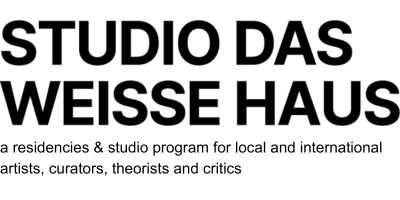Weekly Conversations… with Miwa Negoro (Curator in Residence 2019)

For this edition, we’ve invited our current Curator in Residence Miwa Negoro.
150 years of diplomatic relations between Austria and Japan give reason for this project. It combines a curatorial residency and an exhibition in das weisse haus in April 2019, which refers to these bilateral relations.
You’ve spent now two weeks in Vienna. Could you tell us more about your impressions so far?
Great! Since my arrival, I have been visiting inspiring artists based in Vienna quite intensively. I enjoy conversations with them, and it is essential to have a dialogue to get to know the production process and to discover thoughts behind the works further. Meanwhile, I’m trying to grasp the city’s cultural topography, reaching different neighborhoods one after another. I am simply fascinated by experiencing historical layers of the city, at the same time it is thrilling to feel productive vibes in the contemporary art scene.
What is the focus of your curatorial work and which topics do you mainly deal with?
As an independent curator, my motivation lies in reconfiguring hegemonic social mechanisms and cultural representation to imagine the otherwise. The topics are intricately entangled with the legacy of modernity, coloniality, dichotomy, and geopolitical complexities, and therefore I believe re-narrating ongoing hi/her stories from multiple perspectives is an essential gesture at the current time. The group exhibition my grammar and (y)ours? that I recently curated in Zurich, for instance, invited the artists whose practices explore transcultural representation through video installation, sculpture, writing, performance, and public exercise. For me it was a practice of investigating a performative mode of bodies, considering bodies as a social sphere where language and power are exercised. The idea was inspired by the thoughts on hospitality and hostility, combining personal experiences of being the foreign. The questions of such as transcultural representation, de/colonial thinking, and politics of social space are underlined in most of my works. The important thread that I keep questioning from my architectural background to current curatorial practices is what is not being uttered in the master narrative and how to deconstruct a myth.
Could you give us a brief idea about your upcoming exhibition project in das weisse haus?
The project derives from the occasion of 150 years of bilateral relations between Austria and Japan. Treaty and trading are a communicative gesture since the prehistoric times, and it has been constructing the complexities of today’s world, by circulating capitals; commodities, labour, as well as knowledge. In the backdrop of today’s globalization and migration, cultural identification may no longer be articulated through such nation-states. Diverse individuals and groups coexist within the society, and dynamics of cultural encounters shape multiple identities of a place. Identity and subject formation are fluid concepts. However, a normative production of knowledge repeatedly creates a subjective filter of the gaze that attempts to identify any kinds. A traditional dichotomy is embedded in the society that reinforces borderism. I am in the process of finalizing the outline to look at the two different geopolitical positions, which allows us to reflect upon how the current sociocultural system is constituted worldwide. In doing so, the exhibition aims at unfolding complex layers of collective memory that lurk underneath the present and ultimately giving us another perspective.
